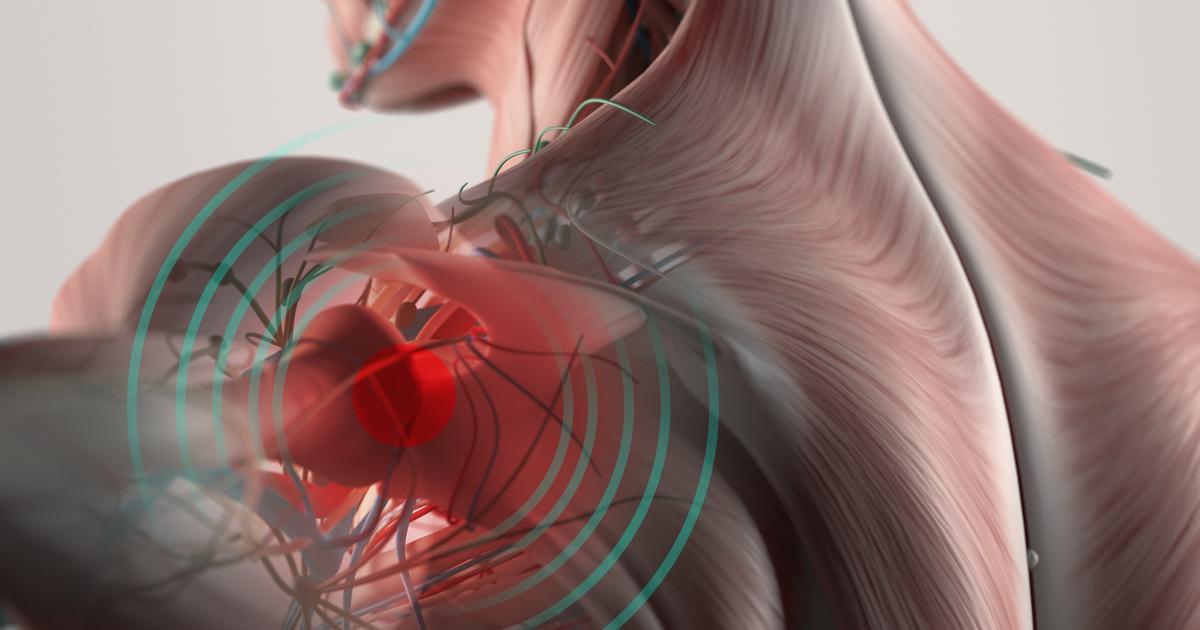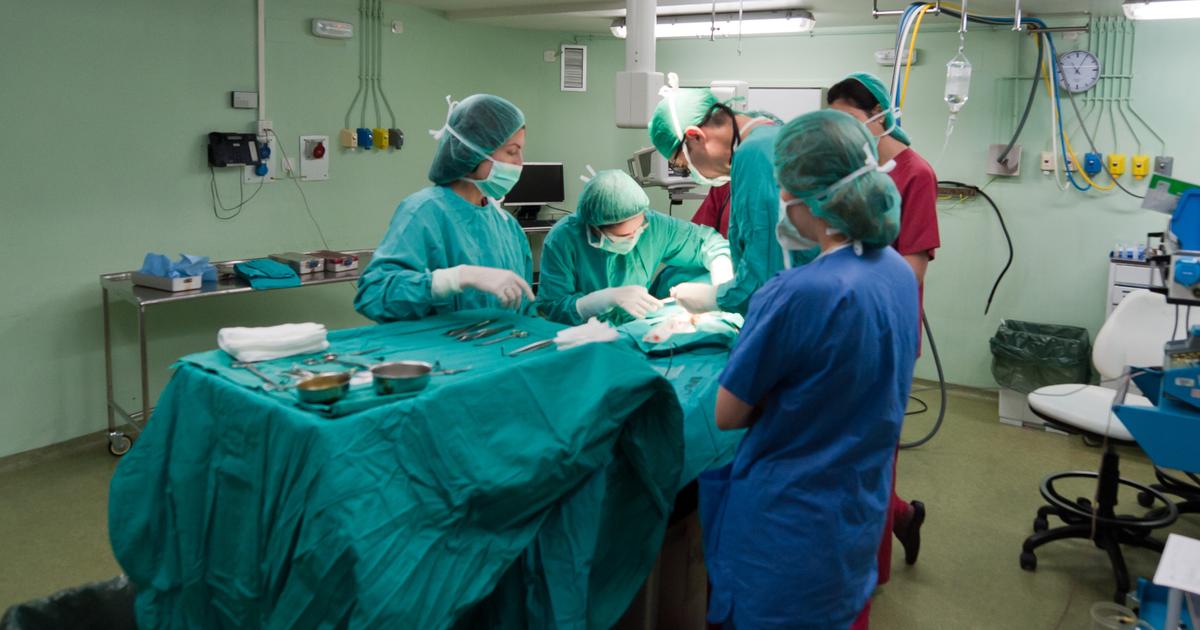Guide To The Symptoms, Causes, And Complications Of Shoulder Impingement
Shoulder impingement commonly causes shoulder pain. In fact, it's one of the main causes of pain in the shoulders. The condition occurs when the bursa or tendons in an individual's shoulder suffer impingement due to the shoulder bones. There are multiple risk factors for shoulder impingement, and different movements and injuries can lead to the condition. There are also potential complications, including reduced quality of life and inflammation. An individual with shoulder impingement feels persistent pain that affects their ability to do everyday activities. Certain motions might make the pain worse, like reaching behind their back or reaching overhead as they put on a shirt or coat.
Get the full details regarding the symptoms, major causes, and complications linked to shoulder impingement now.
Pain With Overhead Use Of Arm

One of the main symptoms of shoulder impingement is pain with overhead use of the affected arm. There's also often pain when the patient reaches behind themselves and tries to move their arm upward. Affected individuals may have trouble pulling on a shirt or a coat because of difficulties raising their arms above their head without pain. Athletes may also be affected and need to take a break from their activities, especially if their sport includes overhead use of their shoulder. Common sports with overhead shoulder use include tennis, swimming, and lifting. Artists may also struggle to paint. Affected individuals may have trouble washing their back when they shower because of this kind of pain.
Read more about the symptoms of shoulder impingement now.
Shoulder Muscle Weakness

The other main symptom of shoulder impingement is shoulder muscle weakness. This can have a detrimental effect on athletes and individuals who engage in physical labor for a living. Construction workers, retail workers who frequently unpack and unload inventory, food service workers who need to unpack and stock inventory, and individuals who work at manufacturing plants may all suffer. Depending on the job and the severity of the condition, patients may still be able to do their job with certain accommodations. But some individuals might be totally unable to complete their day-to-day workplace tasks. Shoulder weakness inhibits the shoulder's ability to function properly. Affected individuals may not have the same range of motion they usually do, and they may not be able to lift the same amount of weight. For some individuals, they'll be able to pick up heavy objects using their arm muscles, but their shoulders will be too weak for them to lift these objects higher than waist level.
Get to know the causes of shoulder impingement next.
Chronic Compression In Shoulders

The cause of shoulder impingement is chronic compression in the shoulders. This compression occurs on a long-term and repetitive basis. Impingement is another term for compression of the shoulder's rotator-cuff tendons. It's also possible for the condition to be caused by an injury, but it is most commonly related to repeated overhead movements. If individuals perform repetitive movements over their head, they have a higher risk of developing shoulder impingement. Some groups at risk include manual laborers and overhead athletes. Athletes who play tennis or swim are at particular risk because of the repetition of their overhead arm motions. Baseball pitchers and weightlifters also have a higher risk. Shoulder impingement is more likely to occur in individuals with poor posture, so being aware of the position of one's shoulders while working can help prevent it.
Learn about another cause of shoulder impingement now.
Shoulder Bursitis

The most common reason for shoulder pain is shoulder bursitis, which is also often called rotator cuff tendonitis. It's not always caused by impingement, but impingement syndrome is a subset of shoulder bursitis. When the condition occurs, the bursa and rotator cuff tendons both become inflamed. The bursa is responsible for cushioning an individual's shoulder. In addition to pain executing certain movements, affected individuals might find they wake up at night because of the pain. Some patients have shooting pains through their arm's outer edge. The majority of shoulder bursitis cases can be treated without surgery. If individuals immobilize their affected shoulder, they give the injury time to heal. Anti-inflammatory medications can also help reduce inflammation and pain.
Uncover complications linked to untreated or improperly treated shoulder impingement now.
Rotator Cuff Tear

If shoulder impingement isn't treated properly, and the movements of the shoulder continue without the patient resting to heal, the condition can lead to a rotator cuff tear. Rotator cuff tears typically occur after the tendons have sustained injuries over long periods. If an affected individual has been ignoring the pain or taking over-the-counter pain medications and hoping for the best, the repeated strain on the tendon can cause it to tear in two. A tear in the rotator cuff causes serious weakness and may make elevating the arm difficult. On top of this, continued shoulder impingement can also cause a rupture in their biceps. There are two kinds of rotator cuff tear. With a partial tear, only one of the rotator cuff's muscles becomes damaged or frayed. With a complete tear, the rip continues through the entire tendon and pulls it from the bone. Complete tears are much more serious than partial tears.
Reveal additional causes of shoulder impingement now.
Overuse Of The Muscles

Overuse of the muscles is a major cause of shoulder impingement, a condition common in pitchers, swimmers, and others who frequently use their shoulders for activities involving repetitive motion. When the muscles in the shoulder region are overused, they swell, and this causes them to catch on the upper shoulder bone with movement. Patients who have overused these muscles could experience weakness in the arms, and they may feel a constant, dull ache in their shoulder. The pain might spread from their shoulder to the side of their arm, and many patients report increased pain at night. To recover from shoulder impingement caused by overuse, patients need to rest, and doctors often recommend activity modification. Athletes may need to take several weeks off from practices and games, and it might be necessary to modify pitching or swimming techniques to avoid future injury. The use of ice packs can ease swelling, and physical therapy will help rebuild strength and range of motion in the shoulder muscles with a series of gentle exercises.
Get more information about the causes and complications of shoulder impingement now.
Adhesive Capsulitis

Adhesive capsulitis ("frozen shoulder") is a condition in which shoulder movement becomes painful. In the first stage of this condition, any movement of the shoulder is accompanied by pain, and the patient's range of motion gradually becomes more and more restricted. In the second stage, pain may be reduced, and the shoulder becomes very stiff. Patients typically have difficulty using their shoulder at this stage. In the third and final stage, the range of motion in the shoulder starts to improve. Each stage of this condition may last several months, and patients could experience more severe pain at night. Individuals who have a condition that limits their shoulder movement could develop adhesive capsulitis. For example, it is common in patients recovering from surgery or a period of immobility. To treat frozen shoulder, doctors typically use physical therapy, pain relievers, and steroid injections. Some patients might need surgical procedures such as shoulder manipulation.
Discover more causes and complications of shoulder impingement now.
Cuff Tear Arthropathy

In some cases, shoulder impingement could lead to rotator cuff tear arthropathy. This condition develops gradually over several years, and it is characterized by severe arthritis of the shoulder accompanied by a large tear in the rotator cuff. Patients typically have a shifting of the normal position of the ball within the shoulder socket, and they also have significantly reduced function of the rotator cuff itself. Swelling may be present around the shoulder, and the muscles in this area might atrophy as well. Physical examination, x-rays, ultrasounds, and MRI scans may be used in the diagnosis of cuff tear arthropathy. Patients with this condition are often advised to have a surgical procedure known as a reverse shoulder replacement. Standard shoulder replacement surgeries are not usually successful for patients with significant rotator cuff injuries. The reverse shoulder replacement procedure involves placing an implant that forms a new socket on top of the humerus bone in the arm, and this eliminates the need for a functioning rotator cuff.
Uncover more complications related to shoulder impingement now.
Reflex Sympathetic Dystrophy

Reflex sympathetic dystrophy, which is often connected to shoulder impingement, is a form of complex regional pain syndrome. Patients with reflex sympathetic dystrophy typically experience persistent pain in a limb that begins after an injury, and the pain is often worse than what would be expected for the particular injury the individual experienced. Patients with this syndrome might also have unusual types of pain; for example, some patients experience pain after light touch that would not normally be painful. Swelling, joint stiffness, osteoporosis, muscle atrophy, and muscle spasms could occur, and patients might develop sensitivity to heat or cold. Alterations in the skin temperature in the affected area have been reported. For example, the affected area might feel colder than the surrounding tissue, and it could also be sweaty at times. Many patients with reflex sympathetic dystrophy report continuous, throbbing pain, and they often describe the pain as a burning or stinging sensation. There is no standard test for the diagnosis of this condition, so doctors rely on ruling out other ailments with a physical examination and bone scans, x-rays, MRI scans, skin temperature readings, and tests of the sympathetic nervous system. Treatment is tailored to the patient's symptoms, and it may include a combination of medication, physical therapy, and medical procedures. Patients might need to try a combination of medicines, including pain relievers, anticonvulsants, antidepressants, and benzodiazepines. Medical procedures that could be beneficial in the treatment of this condition include biofeedback, transcutaneous electrical nerve stimulation, pump implantation, and peripheral nerve blocks. Some patients may be advised to undergo a procedure called a sympathectomy to destroy some of the sympathetic nerves.
Learn more about the causes and complications of shoulder impingement now.
Surgical Repair Complications

Some patients could experience shoulder impingement due to surgical repair complications. Individuals who have undergone a mastectomy or another procedure that involves the armpits, arms, or shoulders are at risk of shoulder impingement after surgery. Patients should discuss this risk with their healthcare professional before the operation, and they should ask what steps can be taken to prevent shoulder complications. Generally, it helps to move the shoulder and arms as early as possible after the surgery, and changing positions often will help as well. Patients should ensure they do not keep their arms or shoulder immobile. If possible, getting out of the hospital bed to walk or sit in a chair could be beneficial, and doing activities involving the hands and arms such as reading a book or knitting could reduce the risk of shoulder complications as well. Patients should always let their healthcare team know if they develop any pain in their shoulder so appropriate investigations and treatment can be provided.
